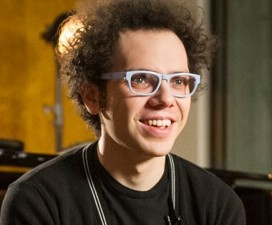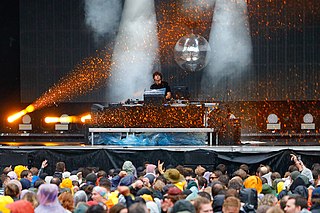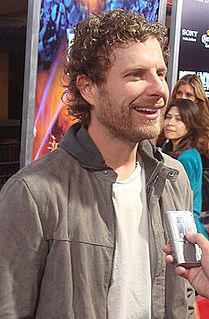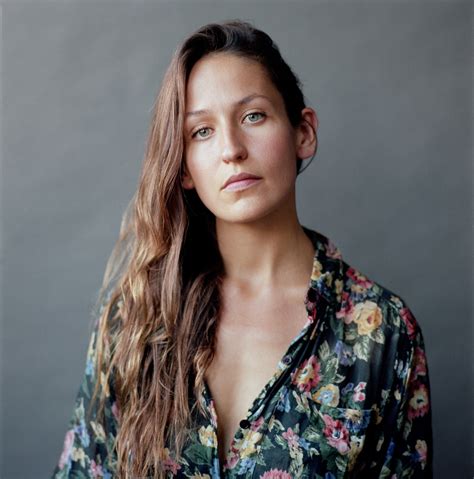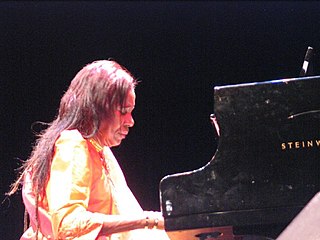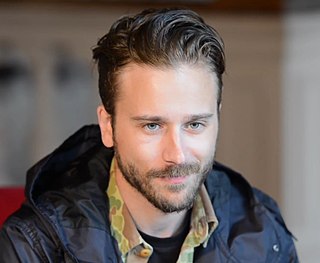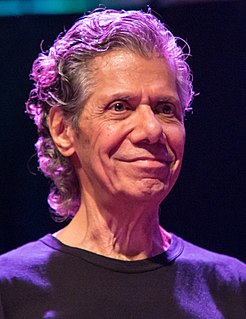A Quote by Ian Axel
We met because Chad was in one of my classes, and I was looking for someone to write music with. I knew that he wrote his own music, and he seemed nice, so I found out he was going to be in a practice room, practicing his trumpet. He'd already said he was too busy to hang out or hear any new people or work on any music, so I stalked him.
Related Quotes
I've written arrangements for choirs and strings in the past, but I usually write music with my voice or a keyboard and then I'll get someone who is good at writing scores to write it out. Or, if I have the luxury of time, I will go in a room and hear the people perform and then change it through what I hear, not on paper. I can read music OK, but I probably rebelled a little - music changes into something else when you read it.
People have an affinity towards things, and you don't know where it comes from. Mozart wrote a symphony when he was four, so it's said; the theory is maybe because his father was a conductor, it happened in vitro, and he heard the music before he was born, and by the age of four he knew how to write music.
Any young, aspiring musicians out there, if music is what you want to do, if music is what you love and your passion. It doesn't take a fragrance, it's not about the tabloids, it's about you putting in the work, practicing every day, practicing your vocals, practicing your instrument, practicing songwriting. Hopefully one day you write the song the whole world wants to get down to. I promise you, if you go out there and sing and you put your heart and soul into it and you follow your dream, one day you're going to be sitting next to Ellen DeGeneres talking about how you broke records and rocked the Super Bowl.
In the point of view of my personal feelings, I love the music as well as the cinema, but the future of a trumpet player - in the money point of view, but also any point of view - is very short on expectations. The life of a moviemaker can be glorious and wonderful. It can put your life in the best of possibilities. I decided to forget music. Not forget, because this is impossible, but to work in cinema, and just to be someone who loves music, and who tries to make music with his films.
I wasn't a kid when I came out. Soulja Boy was 16. I'm saying that when he came out he was a kid so it was naturally a show for him. It's not about the music right away. It's a show for him. Not that he's not putting enough effort into his music, but how much effort can a 16 year old put into his music because as you mature and get older even the songs he's doing now has evolved and he's looking back.
It was so interesting, when [John Coltrane] created A Love Supreme. He had meditated that week. I almost didn't see him downstairs. And it was so quiet! There was no sound, no practice! He was up there meditating, and when he came down he said, "I have a whole new music!" He said, "There is a new recording that I will do, I have it all, everything." And it was so beautiful! He was like Moses coming down from the mountain. And when he recorded it, he knew everything, everything. He said this was the first time that he had all the music in his head at once to record.
My dad was all about music. He was a musician, leading a band when I was born. His band was active all through the 40s. He'd started it in the late 20s and 30s. According to the scrapbook, his band was doing quite well around the Boston area. During the Depression they were on radio. It was a jazz-oriented band. He was a trumpet player, and he wrote and arranged for the band. He taught me how to play the piano and read music, and taught me what he knew of standard tunes and so forth. It was a fantastic way to come up in music.
Because I work so much, people think that I have a team writing for me, but that's not why I chose to write music for films. I chose to write music because I like to write music. So every single note that comes out of my studio is written by me, and I wouldn't be able to do two movies at the same time.
I have studied the enemy all my life. I have read the memoirs of his generals and his leaders. I have even read his philosophers and listened to his music. I have studied in detail the account of every damned one of his battles. I know exactly how he will react under any given set of circumstances. And he hasn't the slightest idea of what I'm going to do. So when the time comes, I'm going to whip the hell out of him.
